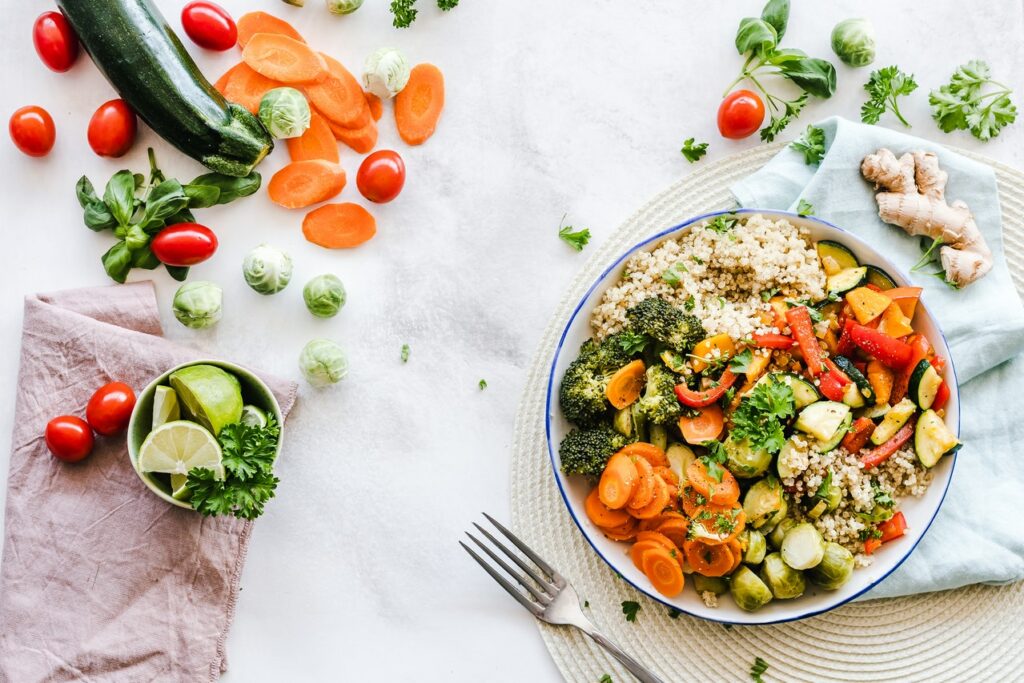Nutrition and Mental Health Statistics
I’m eager to share with you nutrition and mental health statistics. Hopefully, you will gain an understanding of how your food choices can play a significant role in your mental well-being. This isn’t just a hunch — it’s supported by a growing body of research. The statistics show that what you eat does affect your mood, stress levels, and even your risk of mental health conditions. Now, let’s get into the heart ❤of the matter.
If you’re wondering about the numbers, here’s a fact: according to the World Health Organization, depression is a leading cause of disability worldwide. The story doesn’t end there.
Studies have found that diets high in processed foods, and sugar are linked to higher rates of depression. Growing evidence is proving that sugar is presented with many different names. That’s a crucial statistic that underlines the importance of considering diet as part of mental health care.
It’s not only about what we should limit. Certain nutrients, like omega-3 fatty acids, antioxidants, vitamins, and minerals, have been shown to boost mood and protect the brain. For instance, a deficiency in vitamin B12, is often found in people following a strict vegan diet. If a vegan doesn’t use B12 supplementation, she is at higher risk for depression.

Glenn showing off our sweet potatoes?
The Best Foods
What is going on with our diets that could have such a profound impact? Research points out that dietary patterns like the Mediterranean diet are associated with a lower risk of depression. This lifestyle is rich in fruits, vegetables, nuts, and lean proteins. You’ve got to see the picture that the research is painting: a balanced diet isn’t just about physical health, it’s a pillar for mental resilience as well.
So how can we use nutrition as a tool to combat mental health issues effectively? There’s a lot of opportunity in understanding the specific ways our dietary choices can be tweaked to support mental wellness. And don’t worry too much about making drastic changes all at once. You can always adjust your approach little by little.
Every step you take towards changing your diet, is a step in the right direction.
Choose something that resonates with you. It could be something as simple as adding more leafy greens to your diet, or cutting down on sugar. Remember, your first attempt doesn’t need to be your last. From here, we’ll explore how diet specifically impacts conditions like depression and anxiety, and what the statistics tell us about the food-mood connection.
Diet and Mental Health Conditions
Some of these facts might surprise you. What you eat can affect your mind. Numerous studies have shown that certain dietary choices can significantly influence the development, and management of conditions like depression and anxiety.
A study published in the ‘American Journal of Psychiatry‘ found that individuals who adhered to a traditional Mediterranean diet had a 25-35% lower risk of developing depression than those who consumed a typical Western diet rich in processed foods. Wow, a statistic like that really makes you think about what’s on your plate.

It’s not just about the broader dietary patterns. For example, omega-3 fatty acids, commonly found in fish, have been associated with decreased rates of depression. It’s clear that there’s a powerful connection between the foods we eat and how we feel.
Here’s something else to consider: the potential drawbacks of a diet-driven approach. While the value of certain nutrients cannot be overstated. The concept of nutrient deficiencies like vitamin D or magnesium impacting mood is well-documented, yet complex. It requires a close look at personal health, diet, exercise and sometimes supplementation.
Remember – it’s not an either-or situation when comparing dietary supplements to whole foods. Our foods have been so devoid of vital nutrients, that we are forced to supplement. Each has a role to play, and finding the right balance can be key. In my opinion, considering the broader context of your dietary habits is crucial when examining statistical correlations with mental health.
You might be wondering if these improvements are reflected in more severe mental health conditions. Good question. The data suggests that while diet is not a standalone cure, it forms a critical component of a comprehensive treatment approach.
Practical Advice for Improving Mental Health
A little known secret: food isn’t just fuel; it’s information for your brain. Consuming a balanced diet rich in essential nutrients can do wonders for your mental well-being. According to a mound of studies, individuals who maintain a healthy diet, have a lower risk of experiencing mental health problems. Poorer dietary patterns don’t fare so great for good mental health.
Lack of Spiritual health can most certainly impact our mental health. Without a robust relationship with our Heavenly Father, we have no hope in this life. Give yourself a spiritual boost with this article: Bible Verses on Mindfulness, which will help you be more mindful about the foods you consume.
Now, you might be wondering, ‘Can a nutrition coach or dietary coach really make a difference to my mental health?’ The answer, backed by statistics, is a resounding ‘Yes!’ Nutritional Coaching can tailor a nutritional plan to address your specific mental health needs, and show you ways to stay on track with your plan.

Keep it Simple Please
Let’s discuss simple, everyday adjustments to your eating habits that can boost your mood and mental clarity. It’s not about overhauling your lifestyle overnight, but about making informed, incremental changes that add up over time.
Consider this: The financial burden of mental health care might actually decrease if more people embraced the relationship between diet and mental health. The statistics suggest that a population with better nutritional habits could see a drop in mental health issues. This would ease the strain on health care systems, and improve overall quality of life for many.
Choose something that resonates with you, and start there. Maybe it’s swapping out that mid-morning pastry for a piece of whole fruit, or perhaps it’s increasing your water intake. These seemingly small choices could be the key to a happier, healthier mind.
Peace,
Josette